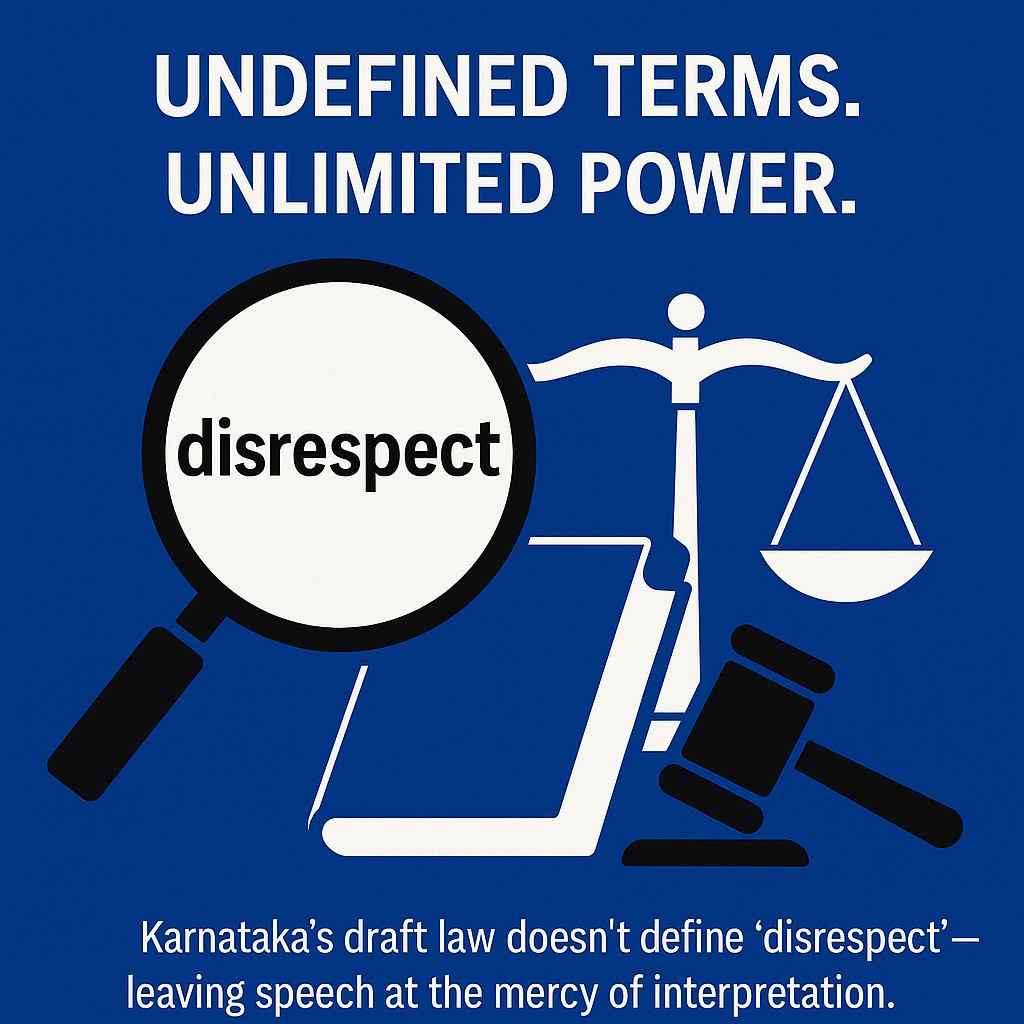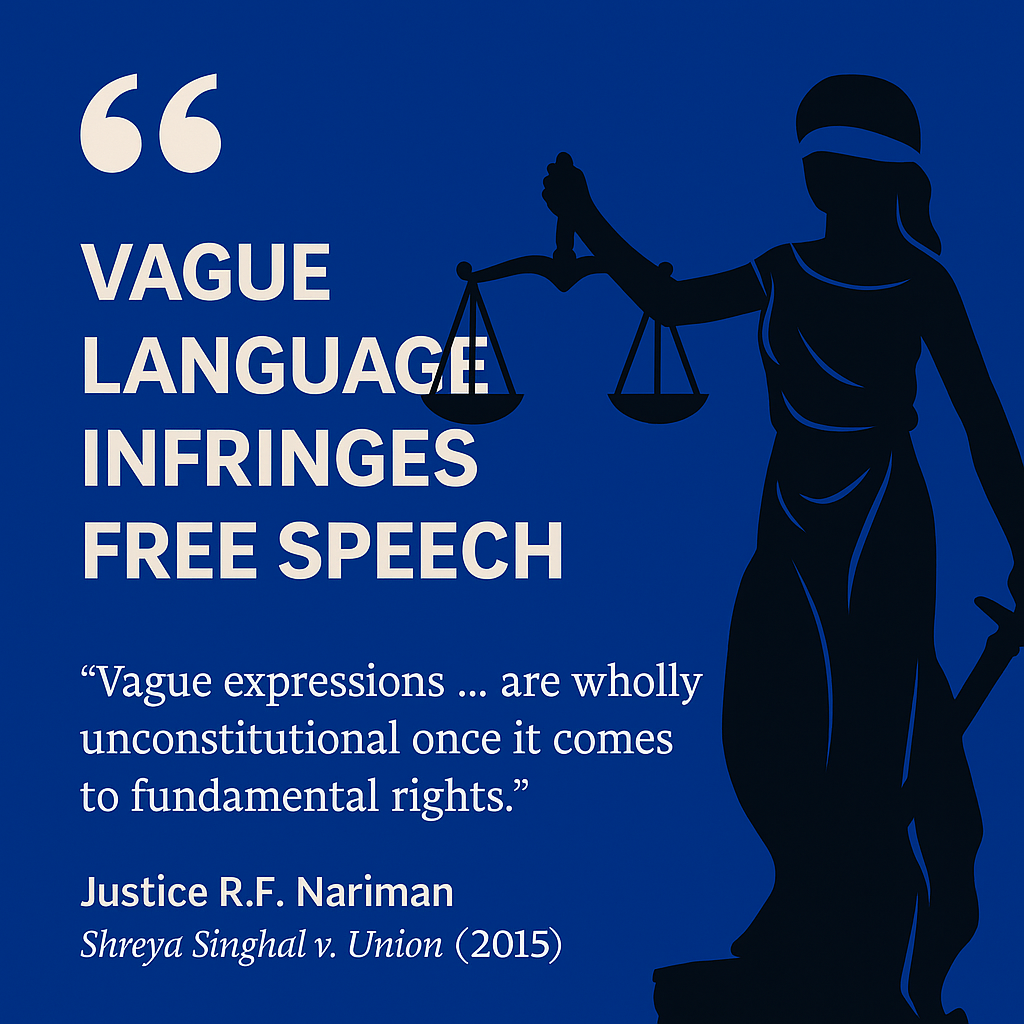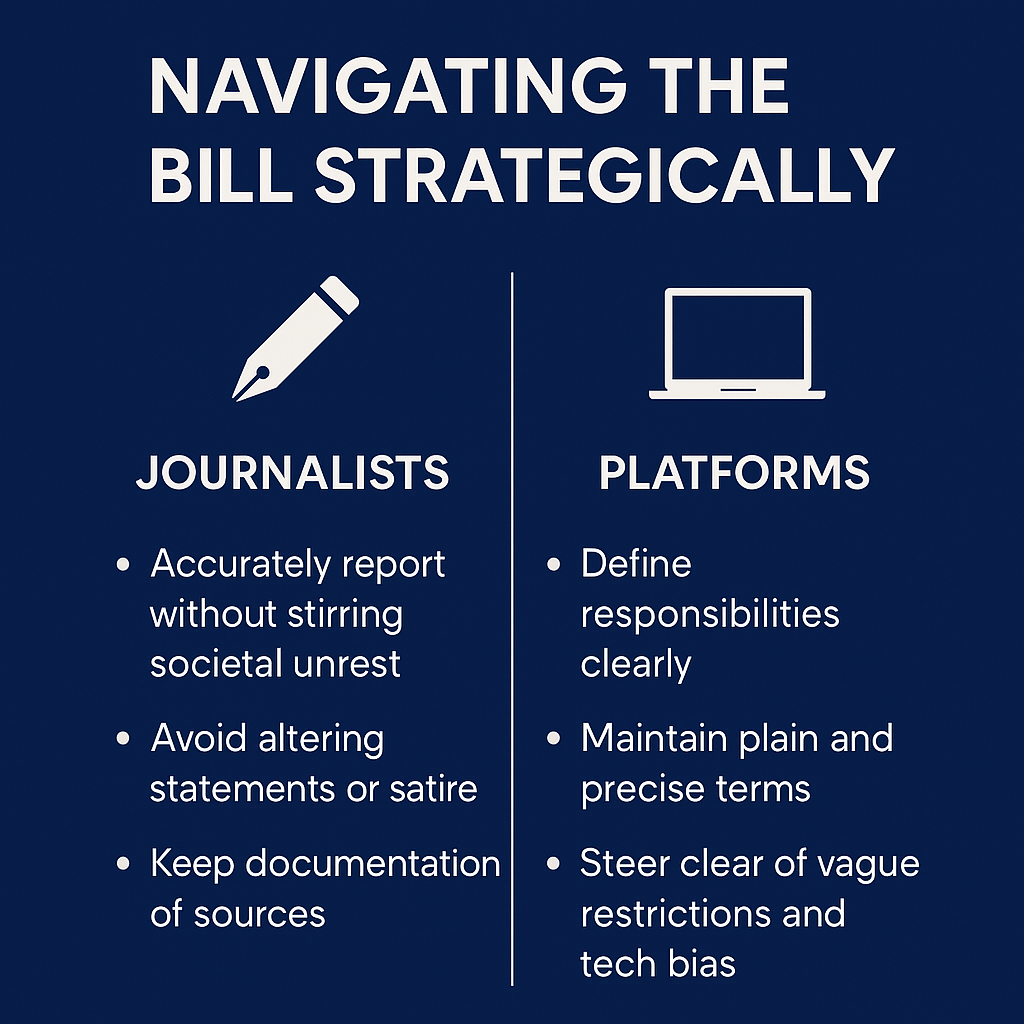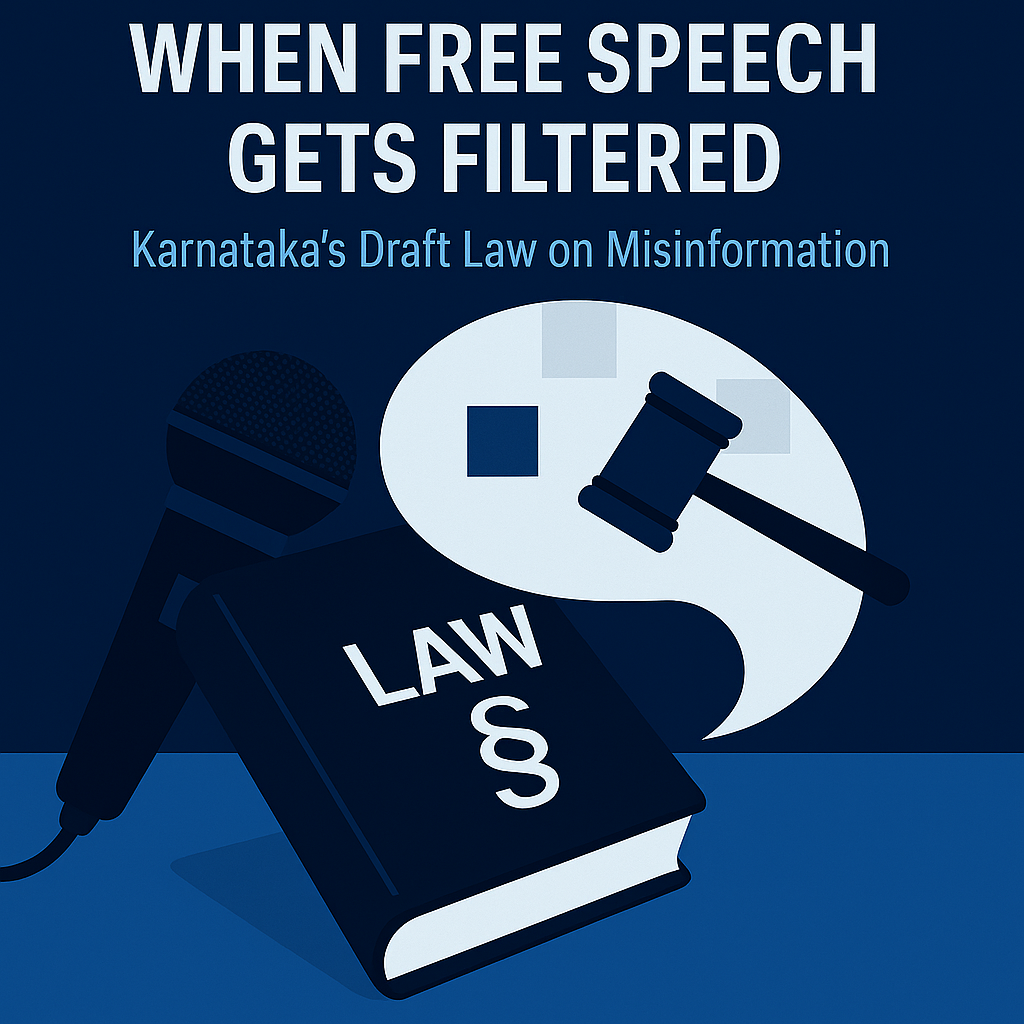When Laws Target Words, Free Speech Suffers First
Free speech is once again under serious threat as the draft Karnataka Fake News Bill 2025 triggers outrage across legal and media circles. Touted as a tool to curb misinformation, the leaked provisions of this bill hint at far more than a regulatory attempt. With proposed penalties including ₹10 lakh fines and 7-year jail terms for content that “disrespects religious beliefs,” many fear the bill prioritizes religious sentiment over constitutional rights. Is this a justified attempt to curb viral falsehoods or a backdoor to suppress dissent?
What Does the Karnataka Fake News Bill 2025 Actually Say?
The draft, which surfaced ahead of the monsoon legislative session, introduces stringent penalties for publishing or circulating content deemed “misleading,” “disrespectful,” or disruptive to “public order.”
| Clause | Provision | Penalty |
| Section 3 | Publishing “deliberate misinformation” | ₹1 lakh fine + 3 years’ imprisonment |
| Section 5 | Content “disrespecting religious sentiments” | ₹10 lakh fine + 7 years’ imprisonment |
| Section 7 | Repeated offence | Non-bailable, cognizable offence |
| Section 9 | Police may take down content without court order | Executive discretion |
Key Issue: Terms like disrespect, misinformation, and public order remain undefined, opening wide doors for interpretation and misuse.
What Exactly Does ‘Disrespect’ Mean in Law?
Unlike defamation or sedition, the term “disrespect” has no legal definition in Indian statutes. Its undefined nature could empower authorities to suppress even fact-based, critical content under the guise of preserving religious harmony. This legal ambiguity poses serious risks to free speech.

Constitutional Concerns: Is Free Speech the Real Target?
The bill must withstand scrutiny under Article 19(1)(a), which guarantees the right to free speech and expression. Restrictions are permitted under Article 19(2), but only if they are:
- Reasonable
- In the interest of sovereignty, integrity, public order, decency, or morality
- Proportionate and non-arbitrary
This bill risks violating these tests:
- Vagueness: Vague language fails the “reasonable restriction” test (See Shreya Singhal v. Union of India)
- Overbreadth: Sweeps up satire, dissent, and legitimate journalism
- Chilling Effect: Citizens and journalists may self-censor for fear of reprisal

❝Freedom of speech and expression cannot be curtailed on the basis of undefined and subjective standards.❞
— Justice R.F. Nariman, Shreya Singhal v. Union of India
Free Speech vs Religious Sentiment: A Legal Balancing Act
While protecting religious sentiment is a valid aim, courts have warned against:
- Weaponizing blasphemy to silence dissent
- Using “hurt sentiment” as a vague legal standard
- Criminalizing satire or journalistic content
| Law | Focus | Judicial View |
| IPC Section 295A (BNS §196) | Deliberate insult to religion | Must prove intention + public disorder |
| Karnataka Bill 2025 | Mere “disrespect” or hurt | No requirement of intention or disorder |
🧾 Court Guidance: In Ramji Lal Modi and Mahendra Singh Dhoni v. Y, courts held that “hurt sentiments” alone cannot justify restrictions on free speech unless accompanied by clear public danger.
The Bigger Picture: How Other Democracies Handle Fake News
| Country | Free Speech Protection | Fake News Approach | Penalty Type | Enforcer |
| India | Moderate (Art. 19) | Criminal + Executive Orders | Jail + Fine | Police, State |
| USA | Very High (1st Amendment) | Civil liability + platform self-regulation | Civil | Courts |
| UK | Balanced (Human Rights Act) | Regulated by Ofcom | Administrative | Regulator |
| EU | Strong (EU Charter) | Platform-based enforcement (DSA) | Fines | EU Commission |
| UAE | Low (blasphemy laws) | Criminalization of defamation | Jail + Heavy Fines | Police, Courts |
Practical Risks: Who Will Be Silenced?
This bill could directly or indirectly silence:
- Journalists reporting on religion or politics
- Satirists and comedians critiquing societal norms
- Academics and authors discussing sensitive cultural topics
- Social media creators voicing political opinions
- NGOs publishing reports on rights violations

Key Point: Even truthful but critical speech may be criminalized under vague categories of “misinformation.”
Role of Intermediaries: Should Platforms Be Scared?
Under the IT Rules 2021, platforms must comply with takedown orders. The Karnataka bill goes further by:
- Authorizing police to issue direct takedown orders
- Penalizing non-compliance without due process
- Bypassing judicial oversight
Legal Conflict: This violates the Shreya Singhal ruling, where the SC mandated that content takedown must follow judicial scrutiny, not executive discretion.
Implementation Challenges: Can This Bill Actually Work?
Several issues make implementation impractical and potentially unconstitutional:
- Vague terms = inconsistent enforcement
- No judicial filter = potential abuse of power
- Judiciary overload = spike in bail pleas, PILs
- Legal uncertainty = pre-emptive legal challenges by press, platforms
Strategic Advice: What Can Clients and Professionals Do?

For Media Houses & Journalists:
- Pre-screen content for legal risks
- Publish on multiple platforms with disclaimers
- Archive source materials for legal defence
For Platforms:
- Strengthen legal compliance and moderation teams
- Log user content traceability
- Be prepared to litigate unconstitutional orders
For Civil Society & Litigants:
- File PILs or amicus briefs if passed
- Use RTI to uncover enforcement patterns
- Pressure MLAs/Ministers to revise overbroad sections
Read Also:
- J.O. vs Internet Platforms: Take It Down or Backfire?
- Adriana Smith Case: Ethics of Consent and Medical Law
- Music Copyright in 2025: Ed Sheeran and AI Songs
References:
- The Hindu (2025) – Draft Fake News Bill Triggers Legal Backlash
- LiveLaw.in – Constitutional Challenges to Misinformation Laws
- Shreya Singhal v. Union of India, AIR 2015 SC 1523
- Reuters
Need Legal Guidance:
Whether you’re a journalist, content creator, publisher, or platform operator, navigating today’s legal landscape around free speech and online content can be risky. LexNova Consulting offers:
- Legal advice on content regulation, IT rules, and free speech safeguards
- Drafting of disclaimers, digital policies, and platform terms
- Assistance with constitutional challenges and takedown notices
Disclaimer
This blog is for educational and informational purposes only. It does not constitute legal advice. For personalized guidance on content liability or platform compliance, please contact LexNova Consulting directly.

